The EU’s industrial Renaissance is also due to aluminium
The EU’s industrial policy should intervene to defend and enhance its manufacturing system and to tackle the industrial Renaissance. The case of aluminium and the indications of the 2019 study by LUISS
The important theme of an organic industrial policy in the EU has been tackled by international experts in June in Brussels, during a debate organized by FACE; the Federation of Aluminium Consumers in Europe. The event was held within a high-level meeting, reserved to a selected audience of about 200 participants, promoted by POLITICO magazine on the occasion of the parting conference of the European Commission, Jean-Claude Juncker. The FACE representative for the relationship with the Commission, Roger Bertozzi, introduced the key argument concentrating on the aluminium sector, which is an exemplary instance of the difficult relationship between commercial and industrial policies in the EU. Roger Bertozzi summed up the serious concerns regarding the case of aluminium due to the results of a recent study on the competitiveness of the EU’s light metal industry, commissioned by FACE and carried out by the “Fabio Gobbo” Industrial and Financial Research Group of the LUISS Guido Carli University in Rome, called “THE EUROPEAN UNION ALUMINIUM INDUSTRY- THE IMPACT OF THE EU TRADE MEASURES ON THE COMPETITIVENESS OF DOWNSTREAM ACTIVITIES (Rome, 04 June 2019 – Authors and contributors to the Study: Professor Ernesto Cassetta, Professor Umberto Monarca, Professor Cesare Pozzi, Professor Davide Quaglione).
We provided our readers with an anticipation of some of the truly disquieting data revealed by the LUISS study and presented in detail during the POLITICO event by Roger Bertozzi: the great accused as we all know is the EU tariff on raw metal, a measure which inflicts upon the aluminium downstream industry, which accounts for 92% of jobs and 70% of revenues of the entire industry, an additional financial burden adding up to more than 18 billion euro since 2000, hat is , roughly one billion euro a year.
An industry with low margins such as the aluminium downstream, where raw materials account for up to 60% of the cost of semis, clearly cannot afford such a handicap, faced with international competition. Our conclusion is the same as always: tariffs are a protective tool which should be used cautiously, because they imply an artificial change in relative prices, therefore they disturb the correct functioning of the market. The upsurge of protest against Trump’s tariffs which was raised by the great US manufacturers of several types of goods containing aluminium, starting from the producers of containers for beverages and car manufacturers, repeated exactly the arguments against the EU tariff on raw aluminium upheld by FACE during the last 20 years, formally acknowledging that the small European consumers’ association had hit the nail on the head and looked beyond the surface of things. Conclusions emerging from last June’s event in Brussels are the usual ones: the EU needs an effective policy for the aluminium industry which should consider all of the value chain starting from the upstream industrial activities right up to end users, as well as interactions among measures in different industries, such as energy, trade, research. Abolishing the tariff on raw aluminium is a step which should have been taken years ago, today it may no longer be postponed since it is clear that it does not protect anything, since the upstream production of primary metal, due to a free choice of manufacturers, inevitably keeps on leaving the Union and the EU is therefore increasingly, seriously lacking in primary metal; but the most serious issue is that, with the extra costs which it causes, the tariff on the imports of raw aluminium is burning out the competition tools of the downstream segments which are the real strength of the EU’s aluminium system .Today there are no excuses for anyone, data are self-explanatory, the cost of the tariff on raw aluminium is an evil which should be eliminated as soon as possible: smelters in Europe should and may remain if supported by adequate action plans different from customs tariffs, just as the production of secondary metal should be supported by creative and effective measures, as it is the base of circular economy which is a natural privilege for the light metal.
